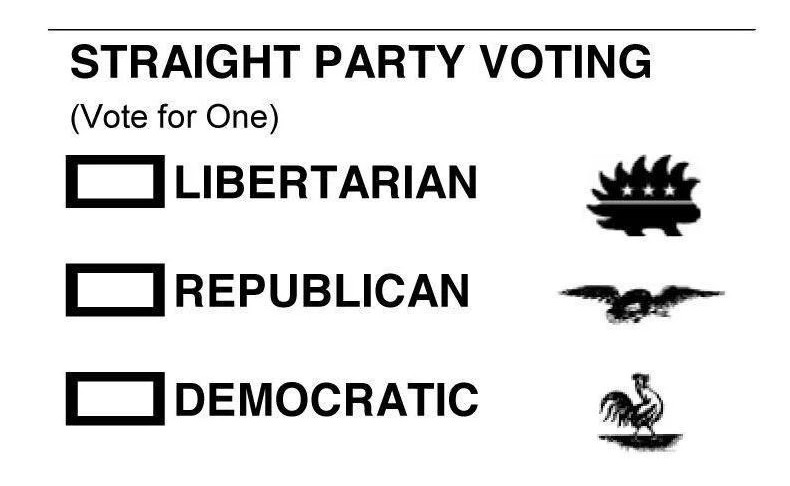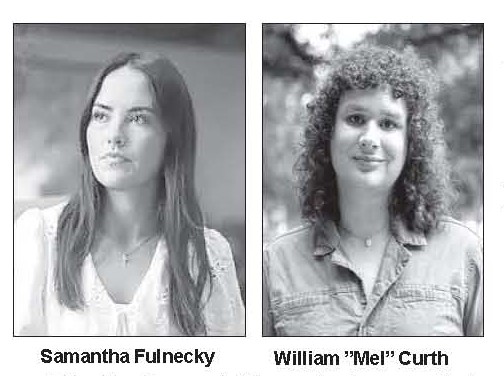All Six State Questions Approved By Voters
State Question 758 received 68 percent of the vote. The measure lowers the Ad valorem tax limit on valuation increases. It was proposed two years ago in HJR 1002 by Rep. David Dank and Sen. Jim Reynolds. The constitutional amendment limits the annual increase in the fair cash value of a homesteaded or agricultural property to 3 percent. The previous annual cap on ad valorem tax valuation increases was 5 percent.
State Question 759 was approved with 59 percent of the vote. The amendment prohibits state and local governments from giving preferential treatment or discriminating against individuals for education, employment, and contracting based upon race, color, gender, ethnicity or national origin. The measure was proposed through SJR 15 by Sen. Rob Johnson and Rep. Leslie Osborn. The change to the state constitution eliminates most state or local government affirmative action programs. Exceptions are allowed where gender is a bonafide qualification, where existing court orders and consent decrees require it, or where necessary to receive federal funds.
This was the most controversial of the questions, with opposition coming from the American Civil Liberties Union (ACLU) and a coalition of groups called Keep the Door Open. Groups such as the Oklahoma Federation of Democratic Women, Change Oklahoma, the Oklahoma chapter of the Council on American-Islamic Relations (CAIR), and Coalition For the American Dream were part of the coalition. The proposal was supported by the American Civil Rights Institute which has been pushing similar measures in other states. The organization is headed by Ward Connerly, the black Univeristy of California Regent who won approval of the California Civil Rights Initiative (Preposition 209) in 1996. Connerly visited Oklahoma in October to support State Question 759.
State Question 762 passed with 59 percent of the vote. It takes the Governor out of the parole process for nonviolent convictions. It was proposed in SJR 25 by Sen. Josh Brecheen and Rep. Kris Steele. The constitutional amendment changes the parole process by giving the Pardon and Parole Board the final authority to grant paroles for persons convicted of certain nonviolent crimes. Prior to the change, the Pardon and Parole Board only made recommendations to the Governor who then made the final decision. This proposal was one of the recommendations coming out of a 2007 performance audit of the Oklahoma Department of Corrections conducted by MGT of America, Inc. The audit concluded that the state could save over $40 million over ten years, or $4 million per year, by removing the Governor from the parole process which would result in more inmates being paroled. In September, the Oklahoma District Attorneys Association voted unanimously to oppose the ballot measure. While initially supportive of the proposal, Gov. Fallin expressed her opposition prior to the election. Steele and Brecheen said the Legislature would should work to address any issues concerning Pardon and Parole Board safeguards and policies related to the new voter-approved parole policy.
State Question 764 was supported by 57 percent of voters. It allows the state to commit to up to $300 million of new debt to finance water infrastructure projects. It was proposed with HJR 1085 by Rep. Phil Richardson and Sen. Brian Crain. The constitutional amendment creates the Water Infrastructure Credit Enhancement Reserve Fund and allows the Oklahoma Water Resources Board to issue bonds for water infrastructure projects after other funding sources are exhausted, subject to legislative appropriation and authority. Many opponents see this as another example of the state circumventing the constitutional requirement for a balanced budget put into place at the urging of Governor Leon C . Phillips.
State Question 765 received 60 percent of the vote. It abolishes the unelected Oklahoma Public Welfare Commission which oversees the Department of Human Services (DHS) and allows the Legislature to create a new department for the care and relief of the indigent, elderly, children, and the disabled. The intent is to have the director of the new entity be directly appointed by and accountable to the Governor. The proposal is the result of HJR 1092 by Rep. Kris Steele and Sen. Greg Treat. The Commission has been a constitutionally-mandated, nine-member group of appointed volunteers that has overseen the operations of DHS since 1936. The proposal removes the Commission and its related entities and duties from the state Constitution.
State Question 766 was approved by 65 percent of voters. It exempts all intangible personal property from ad valorem taxation. If intangible property is taxed, it would be an added hardship to businesses in the state, may cause business to leave the state, and discourage businesses from coming to Oklahoma. Schools and other government entities saw it as a potential new source of revenue, perhaps as much as $50 million per year. The measure was proposed through SJR 52 by Sen. Mike Mazzei and Rep. David Dank.
The constitutional amendment was in response to a 2009 Oklahoma Supreme Court ruling involving Southwestern Bell Telephone that determined that businesses could be required to pay property taxes on intangible personal property such as customer lists, databases, patents, designs, technology, lease agreements, trademarks, trade names, licensed software, insurance policies and more. The court determined that only the items specifically listed in the Constitution are exempt and that any intangible property that was not listed was taxable. The state Constitution specifically exempted stocks, bonds, and cash on hand, from taxation. Intangible items are difficult to quantify and assess for taxation purposes and assessed values for similar businesses could have varied widely from county to county within the state. Support of this measure was one of the ten bills included in the 2012 Oklahoma Conservative Index rating state legislators, published in our Summer edition.










Latest Commentary
Saturday 31st of January 2026
Saturday 31st of January 2026
Saturday 31st of January 2026
Saturday 31st of January 2026
Saturday 31st of January 2026
Saturday 31st of January 2026
Saturday 31st of January 2026
Saturday 31st of January 2026
Saturday 31st of January 2026
Saturday 31st of January 2026
Saturday 31st of January 2026
Saturday 31st of January 2026
Saturday 31st of January 2026